- Home
- Daphne Du Maurier
The Breaking Point Page 9
The Breaking Point Read online
Page 9
‘I gather you’re not too well,’ he said, turning his vulture’s head and staring at her, ‘feeling a bit sick and out of sorts. I won’t stay long. A good night’s rest will put you right.’
She was too numb to answer. She lay quite still as he approached the bed and bent to kiss her. The vulture’s beak was sharp.
‘It’s reaction, Nurse Ansel says,’ he went on, ‘the sudden shock of being able to see again. It works differently with different people. She says it will be much better when we get you home.’
We . . . Nurse Ansel and Jim. The plan still held, then.
‘I don’t know,’ she said faintly, ‘that I want Nurse Ansel to come home.’
‘Not want Nurse Ansel?’ He sounded startled. ‘But it was you who suggested it. You can’t suddenly chop and change.’
There was no time to reply. She had not rung the bell, but Nurse Ansel herself came into the room.‘Cup of coffee, Mr West?’ she said. It was the evening routine.Yet tonight it sounded strange, as though it had been arranged outside the door.
‘Thanks, Nurse, I’d love some. What’s this nonsense about not coming home with us?’ The vulture turned to the snake, the snake’s head wriggled, and Marda West knew, as she watched them, the snake with darting tongue, the vulture with his head hunched between his man’s shoulders, that the plan for Nurse Ansel to come home had not been her own after all; she remembered now that the first suggestion had come from Nurse Ansel herself. It had been Nurse Ansel who had said that Marda West needed care during convalescence. The suggestion had come after Jim had spent the evening laughing and joking and his wife had listened, her eyes bandaged, happy to hear him. Now, watching the smooth snake whose adder’s V was hidden beneath the nurse’s cap, she knew why Nurse Ansel wanted to return with her, and she knew too why Jim had not opposed it, why in fact he had accepted the plan at once, had declared it a good one.
The vulture opened its blood-stained beak. ‘Don’t say you two have fallen out?’
‘Impossible.’The snake twisted its neck, looked sideways at the vulture, and added, ‘Mrs West is just a little bit tired tonight. She’s had a trying day, haven’t you, dear?’
How best to answer? Neither must know. Neither the vulture, nor the snake, nor any of the hooded beasts surrounding her and closing in, must ever guess, must ever know.
‘I’m all right,’ she said. ‘A bit mixed-up. As Nurse Ansel says, I’ll be better in the morning.’
The two communicated in silence, sympathy between them. That, she realized now, was the most frightening thing of all.Animals, birds and reptiles had no need to speak.They moved, they looked, they knew what they were about. They would not destroy her, though. She had, for all her bewildered terror, the will to live.
‘I won’t bother you,’ said the vulture, ‘with these documents tonight. There’s no violent hurry anyway. You can sign them at home.’
‘What documents?’
If she kept her eyes averted she need not see the vulture’s head. The voice was Jim’s, steady and reassuring.
‘The trust fund papers Forbes & Millwall gave me.They suggest I should become a co-director of the fund.’
The words struck a chord, a thread of memory belonging to the weeks before her operation. Something to do with her eyes. If the operation was not successful she would have difficulty in signing her name.
‘What for?’ she asked, her voice unsteady. ‘After all, it is my money.’
He laughed. And, turning to the sound, she saw the beak open. It gaped like a trap, and then closed again.
‘Of course it is,’ he said. ‘That’s not the point. The point is that I should be able to sign for you, if you should be ill or away.’
Marda West looked at the snake, and the snake, aware, shrank into its collar and slid towards the door. ‘Don’t stay too long, Mr West,’ murmured Nurse Ansel. ‘Our patient must have a real rest tonight.’
She glided from the room and Marda West was left alone with her husband. With the vulture.
‘I don’t propose to go away,’ she said, ‘or be ill.’
‘Probably not. That’s neither here nor there. These fellows always want safeguards. Anyway, I won’t bore you with it now.’
Could it be that the voice was over-casual? That the hand, stuffing the document into the pocket of the greatcoat, was a claw? This was a possibility, a horror, perhaps, to come. The bodies changing too, hands and feet becoming wings, claws, hoofs, paws, with no touch of humanity left to the people about her. The last thing to go would be the human voice. When the human voice went, there would be no hope. The jungle would take over, multitudinous sounds and screams coming from a hundred throats.
‘Did you really mean that,’ Jim asked, ‘about Nurse Ansel?’
Calmly she watched the vulture pare his nails. He carried a file in his pocket. She had never thought about it before - it was part of Jim, like his fountain pen and his pipe.Yet now there was reasoning behind it: a vulture needed sharp claws for tearing its victim.
‘I don’t know,’ she said. ‘It seemed to me rather silly to go home with a nurse, now that I can see again.’
He did not answer at once. The head sank deeper between the shoulders. His dark city suit was like the humped feathers of a large brooding bird. ‘I think she’s a treasure,’ he said. ‘And you’re bound to feel groggy at first. I vote we stick to the plan. After all, if it doesn’t work we can always send her away.’
‘Perhaps,’ said his wife.
She was trying to think if there was anyone left whom she could trust. Her family was scattered. A married brother in South Africa, friends in London, no one with whom she was intimate. Not to this extent. No one to whom she could say that her nurse had turned into a snake, her husband into a vulture. The utter hopelessness of her position was like damnation itself. This was her hell. She was quite alone, coldly conscious of the hatred and cruelty about her.
‘What will you do this evening?’ she asked quietly.
‘Have dinner at the club, I suppose,’ he answered.‘It’s becoming rather monotonous. Only two more days of it, thank goodness. Then you’ll be home again.’
Yes, but once at home, once back there, with a vulture and a snake, would she not be more completely at their mercy than she was here?
‘Did Greaves say Thursday for certain?’ she asked.
‘He told me so this morning, when he telephoned.You’ll have the other lenses then, the ones that show colour.’
The ones that would show the bodies too. That was the explanation. The blue lenses only showed the heads. They were the first test. Greaves, the surgeon, was in this too, very naturally. He had a high place in the conspiracy - perhaps he had been bribed. Who was it, she tried to remember, who had suggested the operation in the first place? Was it the family doctor, after a chat with Jim? Didn’t they both come to her together and say that this was the only chance to save her eyes? The plot must lie deep in the past, extend right back through the months, perhaps the years. But, in heaven’s name, for what purpose? She sought wildly in her memory to try to recall a look, or sign, or word which would give her some insight into this dreadful plot, this conspiracy against her person or her sanity.
‘You look pretty peaky,’ he said suddenly. ‘Shall I call Nurse Ansel?’
‘No . . .’ It broke from her, almost a cry.
‘I think I’d better go. She said not to stay long.’
He got up from the chair, a heavy, hooded figure, and she closed her eyes as he came to kiss her good night. ‘Sleep well, my poor pet, and take it easy.’
In spite of her fear she felt herself clutch at his hand.
‘What is it?’ he asked.
The well-remembered kiss would have restored her, but not the stab of the vulture’s beak, the thrusting blood-stained beak. When he had gone she began to moan, turning her head upon the pillow.
‘What am I to do?’ she said. ‘What am I to do?’
The door opened again and she put her hand to h
er mouth. They must not hear her cry. They must not see her cry. She pulled herself together with a tremendous effort.
‘How are you feeling, Mrs West?’
The snake stood at the bottom of the bed, and by her side the house physician. She had always liked him, a young pleasant man, and although like the others he had an animal’s head it did not frighten her. It was a dog’s head, an Aberdeen’s, and the brown eyes seemed to quiz her. Long ago, as a child, she had owned an Aberdeen.
‘Could I speak to you alone?’ she asked.
‘Of course. Do you mind, nurse?’ He jerked his head at the door, and she had gone. Marda West sat up in bed and clasped her hands.
‘You’ll think me very foolish,’ she began, ‘but it’s the lenses. I can’t get used to them.’
He came over, the trustworthy Aberdeen, head cocked in sympathy.
‘I’m sorry about that,’ he said. ‘They don’t hurt you, do they?’
‘No,’ she said, ‘no, I can’t feel them. It’s just that they make everyone look strange.’
‘They’re bound to do that, you know.They don’t show colour.’ His voice was cheerful, friendly. ‘It comes as a bit of a shock when you’ve worn bandages so long,’ he said, ‘and you mustn’t forget you were pulled about quite a bit. The nerves behind the eyes are still very tender.’
‘Yes,’ she said. His voice, even his head, gave her confidence. ‘Have you known people who’ve had this operation before?’
‘Yes, scores of them. In a couple of days you’ll be as right as rain.’ He patted her on the shoulder. Such a kindly dog. Such a sporting, cheerful dog, like the long-dead Angus. ‘I’ll tell you another thing,’ he continued. ‘Your sight may be better after this than it’s ever been before.You’ll actually see more clearly in every way. One patient told me that it was as though she had been wearing spectacles all her life, and then, because of the operation, she realized she saw all her friends and her family as they really were.’
‘As they really were?’ She repeated his words after him.
‘Exactly. Her sight had always been poor, you see. She had thought her husband’s hair was brown, but in reality it was red, bright red. A bit of a shock at first. But she was delighted.’
The Aberdeen moved from the bed, patted the stethoscope on his jacket, and nodded his head. ‘Mr Greaves did a wonderful job on you, I can promise you that,’ he said. ‘He was able to strengthen a nerve he thought had perished. You’ve never had the use of it before - it wasn’t functioning. So who knows, Mrs West, you may have made medical history. Anyway, sleep well and the best of luck. See you in the morning. Good night.’ He trotted from the room. She heard him call good night to Nurse Ansel as he went down the corridor.
The comforting words had turned to gall. In one sense they were a relief, because his explanation seemed to suggest there was no plot against her. Instead, like the woman patient before her with the deepened sense of colour, she had been given vision. She used the words he had used himself. Marda West could see people as they really were. And those whom she had loved and trusted most were in truth a vulture and a snake . . .
The door opened and Nurse Ansel, with the sedative, entered the room.
‘Ready to settle down, Mrs West?’ she asked.
‘Yes, thank you.’
There might be no conspiracy, but even so all trust, all faith, were over.
‘Leave it with a glass of water. I’ll take it later.’
She watched the snake put the glass on the bedside table. She watched her tuck in the sheet. Then the twisting neck peered closer and the hooded eyes saw the nail-scissors half-hidden beneath the pillow.
‘What have you got there?’
The tongue darted and withdrew. The hand stretched out for the scissors. ‘You might have cut yourself. I’ll put them away, shall I, for safety’s sake?’
Her one weapon was pocketed, not replaced on the dressing-table. The very way Nurse Ansel slipped the scissors into her pocket suggested that she knew of Marda West’s suspicions. She wanted to leave her defenceless.
‘Now, remember to ring your bell if you want anything.’
‘I’ll remember.’
The voice that had once seemed tender was over-smooth and false. How deceptive are ears, thought Marda West, what traitors to truth. And for the first time she became aware of her own new latent power, the power to tell truth from falsehood, good from evil.
‘Good night, Mrs West.’
‘Good night.’
Lying awake, her bedside clock ticking, the accustomed traffic sounds coming from the street outside, Marda West decided upon her plan. She waited until eleven o’clock, an hour past the time when she knew that all the patients were settled and asleep.Then she switched out her light. This would deceive the snake, should she come to peep at her through the window-slide in the door. The snake would believe that she slept. Marda West crept out of bed. She took her clothes from the wardrobe and began to dress. She put on her coat and shoes and tied a scarf over her head. When she was ready she went to the door and softly turned the handle. All was quiet in the corridor. She stood there motionless. Then she took one step across the threshold and looked to the left, where the nurse on duty sat. The snake was there. The snake was sitting crouched over a book.The light from the ceiling shone upon her head, and there could be no mistake.There were the trim uniform, the white starched front, the stiff collar, but rising from the collar the twisting neck of the snake, the long, flat, evil head.
Marda West waited. She was prepared to wait for hours. Presently the sound she hoped for came, the bell from a patient. The snake lifted its head from the book and checked the red light on the wall. Then, slipping on her cuffs, she glided down the corridor to the patient’s room. She knocked and entered. Directly she had disappeared Marda West left her own room and went to the head of the staircase.There was no sound. She listened carefully, and then crept downstairs. There were four flights, four floors, but the stairway itself was not visible from the cubby-hole where the night nurses sat on duty. Luck was with her.
Down in the main hall the lights were not so bright. She waited at the bottom of the stairway until she was certain of not being observed. She could see the night-porter’s back - his head was not visible, for he was bent over his desk - but when it straightened she noticed the broad fish face. She shrugged her shoulders. She had not dared all this way to be frightened by a fish. Boldly she walked through the hall. The fish was staring at her.
‘Do you want anything, madam?’ he said.
He was as stupid as she expected. She shook her head.
‘I’m going out. Good night,’ she said, and she walked straight past him, out of the swing-door, and down the steps into the street. She turned swiftly to the left, and, seeing a taxi at the further end, called and raised her hand. The taxi slowed and waited. When she came to the door she saw that the driver had the squat black face of an ape.The ape grinned. Some instinct warned her not to take the taxi.
‘I’m sorry,’ she said. ‘I made a mistake.’
The grin vanished from the face of the ape. ‘Make up your mind, lady,’ he shouted, and let in his clutch and swerved away.
Marda West continued walking down the street. She turned right, and left, and right again, and in the distance she saw the lights of Oxford Street. She began to hurry. The friendly traffic drew her like a magnet, the distant lights, the distant men and women.When she came to Oxford Street she paused, wondering of a sudden where she should go, whom she could ask for refuge. And it came to her once again that there was no one, no one at all; because the couple passing her now, a toad’s head on a short black body clutching a panther’s arm, could give her no protection, and the policeman standing at the corner was a baboon, the woman talking to him a little prinked-up pig. No one was human, no one was safe, the man a pace or two behind her was like Jim, another vulture. There were vultures on the pavement opposite. Coming towards her, laughing, was a jackal.
She turned and r
an. She ran, bumping into them, jackals, hyenas, vultures, dogs. The world was theirs, there was no human left. Seeing her run they turned and looked at her, they pointed, they screamed and yapped, they gave chase, their footsteps followed her. Down Oxford Street she ran, pursued by them, the night all darkness and shadow, the light no longer with her, alone in an animal world.
‘Lie quite still, Mrs West, just a small prick, I’m not going to hurt you.’
She recognized the voice of Mr Greaves, the surgeon, and dimly she told herself that they had got hold of her again. She was back at the nursing-home, and it did not matter now - she might as well be there as anywhere else. At least in the nursing-home the animal heads were known.
They had replaced the bandages over her eyes, and for this she was thankful. Such blessed darkness, the evil of the night hidden.
‘Now, Mrs West, I think your troubles are over. No pain and no confusion with these lenses. The world’s in colour again.’
The bandages were being lightened after all. Layer after layer removed. And suddenly everything was clear, was day, and the face of Mr Greaves smiled down at her.At his side was a rounded, cheerful nurse.
‘Where are your masks?’ asked the patient.
‘We didn’t need masks for this little job,’ said the surgeon. ‘We were only taking out the temporary lenses. That’s better, isn’t it?’
She let her eyes drift round the room. She was back again all right.This was the shape, there was the wardrobe, the dressing-table, the vases of flowers. All in natural colour, no longer veiled. But they could not fob her off with stories of a dream. The scarf she had put round her head before slipping away in the night lay on the chair.

 Jamaica Inn
Jamaica Inn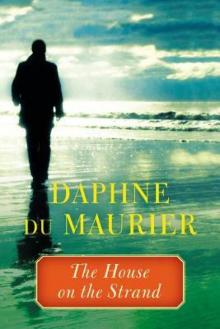 The House on the Strand
The House on the Strand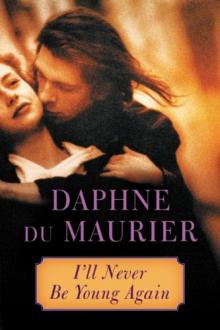 I'll Never Be Young Again
I'll Never Be Young Again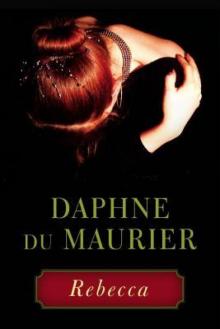 Rebecca
Rebecca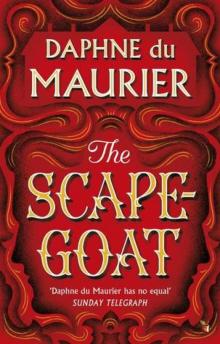 The Scapegoat
The Scapegoat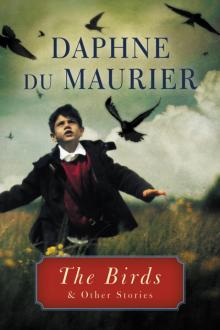 The Birds and Other Stories
The Birds and Other Stories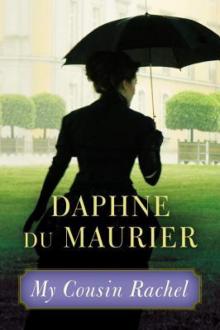 My Cousin Rachel
My Cousin Rachel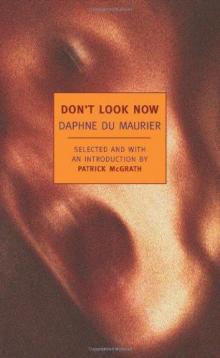 Don't Look Now
Don't Look Now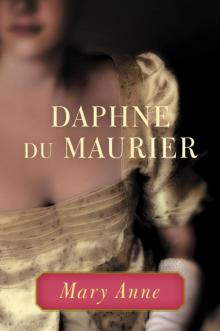 Mary Anne
Mary Anne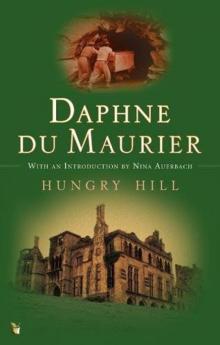 Hungry Hill
Hungry Hill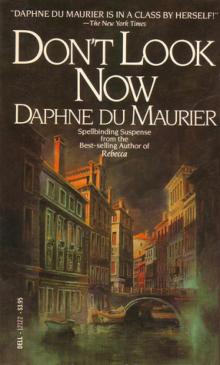 Don't Look Now and Other Stories
Don't Look Now and Other Stories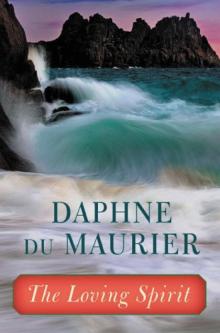 The Loving Spirit
The Loving Spirit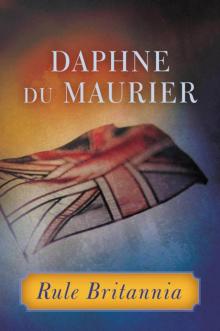 Rule Britannia
Rule Britannia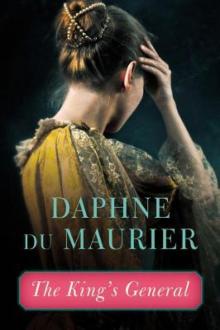 The King's General
The King's General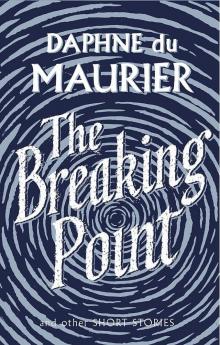 The Breaking Point: Short Stories
The Breaking Point: Short Stories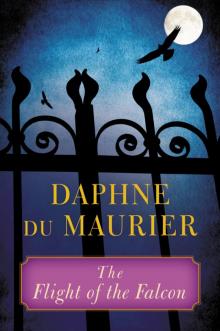 The Flight of the Falcon
The Flight of the Falcon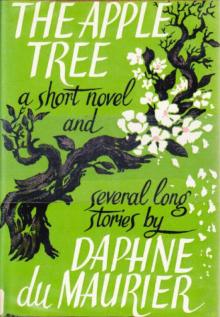 The Apple Tree: a short novel & several long stories
The Apple Tree: a short novel & several long stories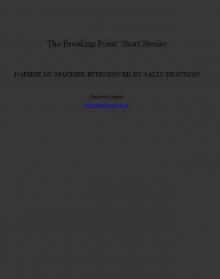 The Breaking Point
The Breaking Point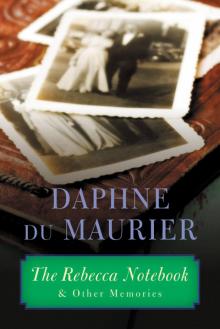 The Rebecca Notebook
The Rebecca Notebook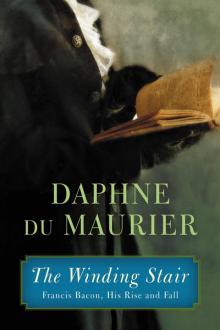 The Winding Stair: Francis Bacon, His Rise and Fall
The Winding Stair: Francis Bacon, His Rise and Fall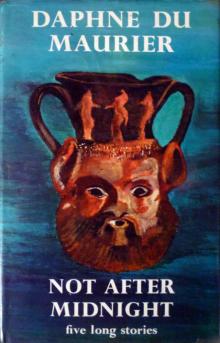 Not After Midnight & Other Stories
Not After Midnight & Other Stories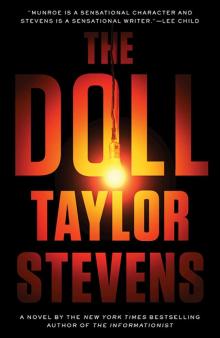 The Doll
The Doll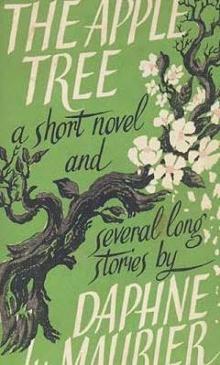 The Apple Tree
The Apple Tree